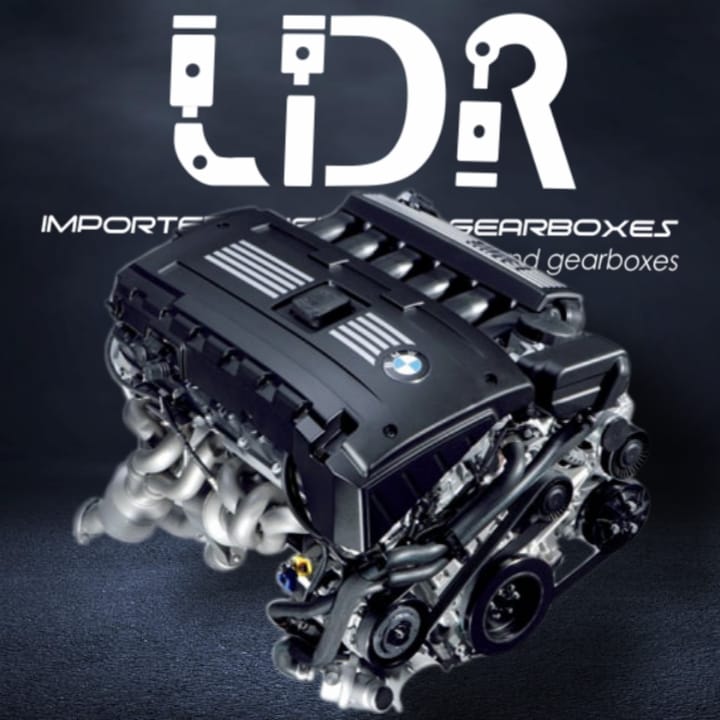Important Elements to Analyze Prior To Purchasing an Engine for Ideal Capability
When taking into consideration the purchase of an engine for optimum capability, numerous critical facets demand thorough assessment to make certain an educated decision. From engine power and efficiency to fuel performance and upkeep considerations, each variable plays a pivotal role in identifying the engine's viability for a certain application. In addition, compatibility with existing car systems and readily available service warranty and assistance options can substantially influence the long-lasting performance and cost-effectiveness of the engine. A comprehensive analysis of these crucial aspects is essential to guarantee the engine meets both current and future functional demands.
Engine Power and Performance
When thinking about engine power and efficiency, it is crucial to evaluate the specific demands of the planned usage to make certain optimal performance and efficiency. The power result of an engine straight affects its efficiency abilities, impacting variables such as velocity, pulling capability, and general operational strength. Recognizing the needs of the application is crucial in determining the right equilibrium of power and performance attributes.
Engine power is usually gauged in units such as horse power (hp) or kilowatts (kW), suggesting the quantity of job the engine can carry out gradually. Higher power scores typically lead to better acceleration and top speed, making them ideal for applications requiring quick responsiveness or durable tasks. It is important to match the engine's power outcome to the specific needs of the intended usage to stay clear of inefficiencies or unneeded strain on the machinery.
Additionally, engine performance incorporates a variety of aspects beyond just power, consisting of fuel performance, discharges regulate, and dependability - bmw 318ti. Assessing these aspects alongside power considerations is essential for making sure that the engine not just provides the needed stamina but likewise runs sustainably and durably in its designated setting
Fuel Performance and Consumption
Thinking about the essential function of engine efficiency in identifying its suitability for different applications, the analysis of fuel efficiency and usage comes to be critical in optimizing operational prices and environmental impact. Fuel effectiveness refers to the engine's ability to transform fuel into functional power properly.
When assessing gas consumption, it is necessary to take a look at the engine's specific metrics, such as gallons of fuel taken in per hour or miles per gallon, relying on the application. Comprehending exactly how much gas an engine takes in under different operating problems can aid anticipate lasting expenses and prepare for effective fuel administration approaches.
Moreover, improvements in engine technology, such as crossbreed systems or fuel injection improvements, can substantially improve fuel performance and reduce intake. Prioritizing engines with superior fuel effectiveness and lower consumption rates can bring about significant cost savings and promote sustainability in numerous markets.
Compatibility With Automobile Systems
Making sure seamless combination and optimal performance, the compatibility of an engine with lorry systems is a critical aspect to evaluate before buying choice. The engine functions as the heart of an automobile, and its capability to work harmoniously with the numerous systems within the car is essential for general capability.
Compatibility includes a range of aspects, including electrical systems, transmission systems, and exhaust systems. An engine that is not suitable with these essential elements can bring about problems such as electrical breakdowns, ineffective power transfer, and enhanced discharges.
Furthermore, compatibility with onboard computer systems is essential for modern-day cars. The engine has to have the ability to connect successfully with the car's computer system to make certain appropriate performance surveillance and diagnostics.
Upkeep and Longevity Considerations

Long life considerations additionally include examining the engine's style, technology, and compatibility with the car to directory guarantee ideal performance throughout its life-span - bmw 318ti. Engines with sophisticated features like effective air conditioning systems, durable components, and fuel-efficient layouts tend to have much better durability and call for fewer repair services. By prioritizing maintenance and picking an engine known for its durability, customers can make a well-informed decision that enhances their lorry's performance and general driving experience
Guarantee and Assistance Choices
Given the crucial duty of maintenance and longevity factors to consider in picking an engine, a prudent customer should now concentrate on assessing the readily available guarantee and assistance alternatives. The warranty given with an engine can vary substantially between designs and producers.
Assistance solutions can range from technological aid a knockout post hotlines to on-site maintenance and repair work services. A solid support system can significantly reduce downtime in instance of engine failure or concerns, inevitably saving time and money.

Conclusion
Finally, when purchasing an engine, it is vital to examine its power, fuel effectiveness, compatibility with automobile systems, upkeep requirements, longevity, and guarantee alternatives. These critical elements play a considerable duty in figuring out the optimum performance of the engine. By thoroughly thinking about these elements, customers can make certain that they are buying an engine that fulfills their demands and delivers reputable efficiency over time.
From engine power and efficiency to sustain effectiveness and additional resources maintenance considerations, each element plays a critical role in identifying the engine's viability for a certain application.Engine power is generally measured in devices such as horse power (hp) or kilowatts (kW), showing the quantity of job the engine can do over time.Thinking about the important duty of engine efficiency in establishing its viability for different applications, the analysis of fuel performance and consumption ends up being vital in maximizing functional prices and ecological impact. Fuel performance refers to the engine's ability to convert fuel into useful power successfully. Additionally, thinking about the high quality of products and building and construction of the engine is important as it can straight influence toughness and just how well the engine withstands wear and tear over time.